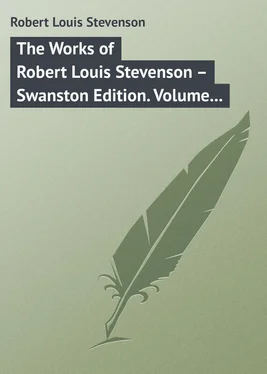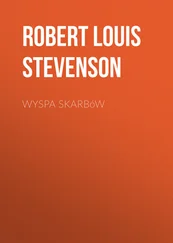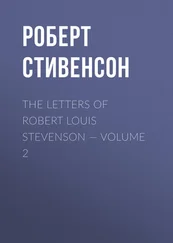Robert Stevenson - The Works of Robert Louis Stevenson – Swanston Edition. Volume 23
Здесь есть возможность читать онлайн «Robert Stevenson - The Works of Robert Louis Stevenson – Swanston Edition. Volume 23» — ознакомительный отрывок электронной книги совершенно бесплатно, а после прочтения отрывка купить полную версию. В некоторых случаях можно слушать аудио, скачать через торрент в формате fb2 и присутствует краткое содержание. ISBN: , Жанр: foreign_prose, на английском языке. Описание произведения, (предисловие) а так же отзывы посетителей доступны на портале библиотеки ЛибКат.
- Название:The Works of Robert Louis Stevenson – Swanston Edition. Volume 23
- Автор:
- Жанр:
- Год:неизвестен
- ISBN:http://www.gutenberg.org/ebooks/30894
- Рейтинг книги:3 / 5. Голосов: 1
-
Избранное:Добавить в избранное
- Отзывы:
-
Ваша оценка:
- 60
- 1
- 2
- 3
- 4
- 5
The Works of Robert Louis Stevenson – Swanston Edition. Volume 23: краткое содержание, описание и аннотация
Предлагаем к чтению аннотацию, описание, краткое содержание или предисловие (зависит от того, что написал сам автор книги «The Works of Robert Louis Stevenson – Swanston Edition. Volume 23»). Если вы не нашли необходимую информацию о книге — напишите в комментариях, мы постараемся отыскать её.
The Works of Robert Louis Stevenson – Swanston Edition. Volume 23 — читать онлайн ознакомительный отрывок
Ниже представлен текст книги, разбитый по страницам. Система сохранения места последней прочитанной страницы, позволяет с удобством читать онлайн бесплатно книгу «The Works of Robert Louis Stevenson – Swanston Edition. Volume 23», без необходимости каждый раз заново искать на чём Вы остановились. Поставьте закладку, и сможете в любой момент перейти на страницу, на которой закончили чтение.
Интервал:
Закладка:
‘He loved of life the myriad sides,
Pain, prayer, or pleasure, act or sleep,
As wallowing narwhals love the deep’ —
so with just self-knowledge he wrote of himself; and the books which he most cared for and lived with were those of which the writers seemed – to quote again a phrase of his own – to have been ‘eavesdropping at the door of his heart’: those which told of experiences or cravings after experience, pains, pleasures, or conflicts of the spirit, which in the eagerness of youthful living and thinking had already been his own. No man, in fact, was ever less inclined to take anything at second-hand. The root of all originality was in him, in the shape of an extreme natural vividness of perception, imagination, and feeling. An instinctive and inbred unwillingness to accept the accepted and conform to the conventional was of the essence of his character, whether in life or art, and was a source to him both of strength and weakness. He would not follow a general rule – least of all if it was a prudential rule – of conduct unless he was clear that it was right according to his private conscience; nor would he join, in youth, in the ordinary social amusements of his class when he had once found out that they did not amuse him ; nor wear their clothes if he could not feel at ease and be himself in them; nor use, whether in speech or writing, any trite or inanimate form of words that did not faithfully and livingly express his thought. A readier acceptance alike of current usages and current phrases might have been better for him, but was simply not in his nature. No reader of this book will close it, I am sure, without feeling that he has been throughout in the company of a spirit various indeed and many-mooded, but profoundly sincere and real. Ways that in another might easily have been mere signs of affectation were in him the true expression of a nature ten times more spontaneously itself and individually alive than that of others. Self-consciousness, in many characters that possess it, deflects and falsifies conduct; and so does the dramatic instinct. Stevenson was self-conscious in a high degree, but only as a part of his general activity of mind; only in so far as he could not help being an extremely intelligent spectator of his own doings and feelings: these themselves came from springs of character and impulse much too deep and strong to be diverted. He loved also, with a child’s or actor’s gusto, to play a part and make a drama out of life: but the part was always for the moment his very own: he had it not in him to pose for anything but what he truly was.
“When a man so constituted had once mastered his craft of letters, he might take up whatever instrument he pleased with the instinctive and just confidence that he would play upon it to a tune and with a manner of his own. This is indeed the true mark and test of his originality. He has no need to be, or to seem, especially original in the form and mode of literature which he attempts. By his choice of these he may at any time give himself and his reader the pleasure of recalling, like a familiar air, some strain of literary association; but in so doing he only adds a secondary charm to his work; the vision, the temperament, the mode of conceiving and handling, are in every case personal to himself. He may try his hand in youth at a Sentimental Journey , but R. L. S. cannot choose but be at the opposite pole of human character and feeling from Laurence Sterne. In tales of mystery, allegorical or other, he may bear in mind the precedent of Edgar Poe, and yet there is nothing in style and temper much wider apart than Markheim and Jekyll and Hyde are from the Murders in the Rue Morgue or William Wilson . He may set out to tell a pirate story for boys ‘exactly in the ancient way,’ and it will come from him not in the ancient way at all, but re-minted; marked with a sharpness and saliency in the characters, a private stamp of buccaneering ferocity combined with smiling humour, an energy of vision and happy vividness of presentment, which are shiningly his own. Another time, he may desert the paths of Kingston and Ballantyne for those of Sir Walter Scott; but literature presents few stronger contrasts than between any scene of Waverley or Redgauntlet and any scene of the Master of Ballantrae or Catriona , whether in their strength or weakness: and it is the most loyal lovers of the older master who take the greatest pleasure in reading the work of the younger, so much less opulently gifted as is probable – though we must remember that Stevenson died at the age when Scott wrote Waverley – so infinitely more careful of his gift. Stevenson may even blow upon the pipe of Burns and yet his tune will be no echo, but one which utters the heart and mind of a Scots maker who has his own outlook on life, his own special and profitable vein of smiling or satirical contemplation.
“Not by reason, then, of ‘externality,’ for sure, nor yet of imitativeness, will this writer lose his hold on the attention and regard of his countrymen. The debate, before his place in literature is settled, must rather turn on other points: as whether the genial essayist and egoist or the romantic inventor and narrator was the stronger in him – whether the Montaigne and Pepys elements prevailed in his literary composition or the Scott and Dumas elements – a question indeed which among those who care for him most has always been at issue. Or again, what degree of true inspiring and illuminating power belongs to the gospel, or gospels, airily encouraging or gravely didactic, which are set forth in the essays with so captivating a grace? Or whether in romance and tale he had a power of inventing and constructing a whole fable comparable to his admitted power of conceiving and presenting single scenes and situations in a manner which stamps them indelibly on the reader’s mind? And whether his figures are sustained continuously by the true spontaneous breath of creation, or are but transitorily animated at happy moments by flashes of spiritual and dramatic insight, aided by the conscious devices of his singularly adroit and spirited art? These are questions which no criticism but that of time can solve. To contend, as some do, that strong creative impulse and so keen an artistic self-consciousness as Stevenson’s was cannot exist together, is quite idle. The truth, of course, is that the deep-seated energies of imaginative creation are found sometimes in combination, and sometimes not in combination, with an artistic intelligence thus keenly conscious of its own purpose and watchful of its own working.
“Once more, it may be questioned whether, among the many varieties of work which Stevenson has left, all distinguished by a grace and precision of workmanship which are the rarest qualities in English art, there are any which can be pointed to as absolute masterpieces, such as the future cannot be expected to let die. Let the future decide. What is certain is that posterity must either be very well or very ill occupied if it can consent to give up so much sound entertainment, and better than entertainment, as this writer afforded his contemporaries. In the meantime, among judicious readers on both sides of the Atlantic, Stevenson stands, I think it may safely be said, as a true master of English prose; scarcely surpassed for the union of lenity and lucidity with suggestive pregnancy and poetic animation; for harmony of cadence and the well-knit structure of sentences; and for the art of imparting to words the vital quality of things, and making them convey the precise – sometimes, let it be granted, the too curiously precise – expression of the very shade and colour of the thought, feeling, or vision in his mind. He stands, moreover, as the writer who, in the last quarter of the nineteenth century, has handled with the most of freshness and inspiriting power the widest range of established literary forms – the moral, critical, and personal essay, travels sentimental and other, romances and short tales both historical and modern, parables and tales of mystery, boys’ stories of adventure, memoirs – nor let lyrical and meditative verse both English and Scottish, and especially nursery verse, a new vein for genius to work in, be forgotten. To some of these forms Stevenson gave quite new life; through all alike he expressed vividly an extremely personal way of seeing and being, a sense of nature and romance, of the aspects of human existence and problems of human conduct, which was essentially his own. And in so doing he contrived to make friends and even lovers of his readers. Those whom he attracts at all (and there is no writer who attracts every one) are drawn to him over and over again, finding familiarity not lessen but increase the charm of his work, and desiring ever closer intimacy with the spirit and personality which they divine behind it.
Читать дальшеИнтервал:
Закладка:
Похожие книги на «The Works of Robert Louis Stevenson – Swanston Edition. Volume 23»
Представляем Вашему вниманию похожие книги на «The Works of Robert Louis Stevenson – Swanston Edition. Volume 23» списком для выбора. Мы отобрали схожую по названию и смыслу литературу в надежде предоставить читателям больше вариантов отыскать новые, интересные, ещё непрочитанные произведения.
Обсуждение, отзывы о книге «The Works of Robert Louis Stevenson – Swanston Edition. Volume 23» и просто собственные мнения читателей. Оставьте ваши комментарии, напишите, что Вы думаете о произведении, его смысле или главных героях. Укажите что конкретно понравилось, а что нет, и почему Вы так считаете.










